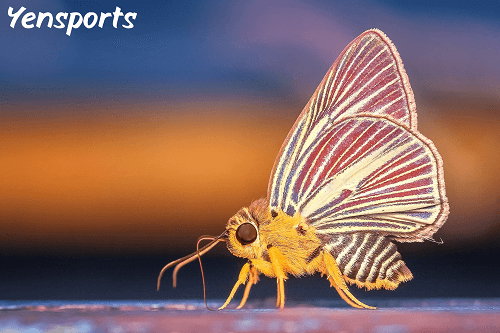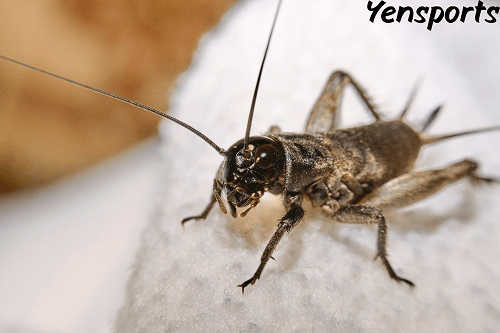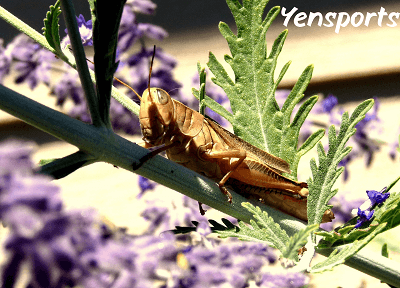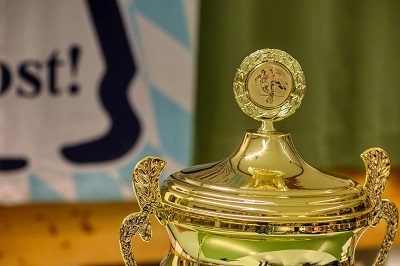Live Crickets 1000 Count: Complete Feeding Guide for Pets, Hobbyists and Wildlife Enthusiasts
Live crickets are the primary food source for many pets: reptiles, amphibians, birds, and several species of fish. Many pet owners, breeders, and hobbyists require large quantities of crickets. Boxed live crickets, especially in boxes of 1000, are a common purchase. In this article, we will learn why live crickets are a popular food choice, how to care for them, and answer common questions about purchasing and keeping live crickets.

Why Live Crickets?
Live crickets are nutritious and natural food for many pets. They contain a lot of protein, fat, and essential amino acids, making them the perfect food source for animals with specific dietary requirements. Their exoskeleton also provides roughage that aids digestion, so it’s not only a tasty treat but also beneficial to the gut. Here is why live crickets are the preferred choice:
-
Nutritional Value:
Crickets contain protein, omega-3 fatty acids, and fiber. They are good sources of vitamins and minerals like B vitamins, calcium, and phosphorus; they all contribute to maintaining a healthy pet.
-
Natural Hunting Behavior:
Many pets are instinctive hunters, especially reptiles and amphibians. Live crickets promote foraging and hunting behaviors for pets in their instinct; thus, mental stimulation and exercise can be achieved.
Live crickets can be fed to a broad range of pets, such as bearded dragons, leopard geckos, chameleons, tarantulas, and even birds. They can also be used to feed fish, especially those that are adapted to live prey.
-
Storage Ease:
Crickets are relatively easy to store if you create a proper environment for them. A 1000-count box should last for several weeks depending on the needs of your pets and the care you provide.
-
Sustainability:
Crickets are more sustainable as feeder insects than others, like mealworms or superworms. They require fewer resources to breed and maintain and thus are an eco-friendly option for pet owners.
Caring for Live Crickets:
To maximize the lifespan and health of the crickets before they become a meal for your pets, it’s important to care for them properly. Here are some key tips:

- Housing: Keep crickets in a well-ventilated container. A large plastic or glass tank with a tight lid works best. The container must be such that it allows for air circulation to prevent moisture from building up and molding. You can use egg cartons or paper towel rolls as hiding places for crickets.
- Temperature: Crickets thrive at temperatures between 75-85°F (24-29°C). If you live in a colder environment, you may need a heat source like a heat mat to maintain the optimal temperature.
- Food and Water: Cricket food pellets, leafy greens, and fruits such as apples and oranges, should be provided fresh. Uneaten food should be removed to prevent mold. Hydration is also important, by providing water in a shallow dish or gel water crystals.
- Humidity: Crickets require a moderate level of humidity, which is between 40-60%. You can maintain it by lightly misting the container once a day. However, you should not make it too wet because this would lead to mold issues.
- Cleanliness: Regular cleaning of the cricket container would prevent waste buildup, which tends to attract bacteria. A clean environment ensures that your crickets stay healthy until they are ready to feed your pets.
How to Use Live Crickets for Your Pet:
When feeding time arrives, make sure to feed the crickets in a controlled manner. Overfeeding crickets to pets can lead to stress or digestive problems, so portion sizes should be tailored to the specific needs of your animal. Some pets may also require gut-loading (feeding the crickets nutritious foods) and dusting with calcium or vitamin supplements to improve the nutritional content of the crickets.
Five FAQs About Live Crickets (1000 Ct):
1. How long do live crickets last in a 1000-count box?
Live crickets’ lifespan is mainly determined by how well they are taken care of. If the conditions are perfect (food, water, and temperature), crickets can live for 1-2 weeks. In case you cannot use all the 1000 crickets at once, you can extend their lifespan by giving them proper care and storage. However, it’s always best to feed them to your pets as soon as possible to ensure they are still healthy and nutritious.
2. Can I store live crickets in a refrigerator?
Don’t store crickets in the refrigerator for long periods. Although they slow down their metabolism when cold, freezing kills them. You can chill them for a few hours in the refrigerator to make them less active and easier to handle; however, return them to room temperature before giving them to your pet.
3. How can I know whether my crickets are healthy?
The healthy crickets are very active, with clean, shiny exoskeletons, and free of any kind of injury or deformity. They do not seem lethargic or weak, and they must be eating and drinking just fine. If crickets are not responsive, full of mold, or look like they are dying too early, this may indicate some kind of improper care or suboptimal conditions.
4. Do I have any options for live crickets?
Yes, there are such alternatives as freeze-dried crickets, mealworms, waxworms, and superworms. However, most pets, especially reptiles, would prefer live insects for movement, which triggers their natural hunting instincts. Live crickets are often considered one of the most nutritious and effective choices.
5. How do I ensure that my crickets are gut-loaded?
Gut-load crickets by feeding them with nutrient-rich foods 24-48 hours before giving them to your pet. You can feed the crickets with high-quality cricket food, leafy greens, carrots, or even grains. This increases the nutritional value of the crickets to ensure they are well-fed and packed with vitamins and minerals when consumed by your pet.
Conclusion:

Live crickets come in boxes of 1,000, so they can be ordered in bulk as a reliable and nutritious food source for many pets. With proper care and habitat, crickets can survive for weeks, making them an easy choice for pet owners. Feeding reptiles, amphibians, birds, and live crickets will not only provide your pet with essential nutrients, but will also promote natural hunting behavior that will keep them healthy and happy.

